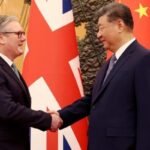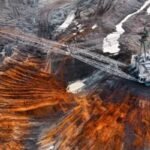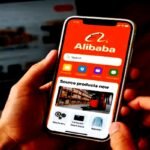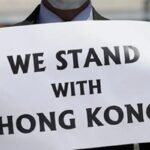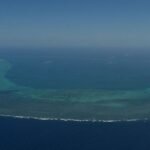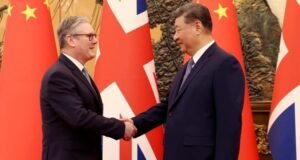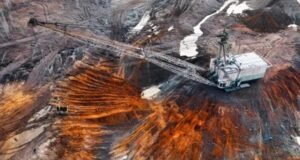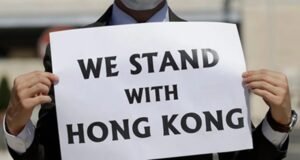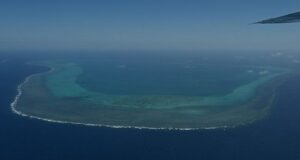
We have noted that almost as soon as Secretary of State Marco Rubio got off the plane in Panama, the country’s president, José Mulino, was pledging to escape its commitment to China’s Belt and Road Initiative and instead work more closely with the United States.
Rich Lowry adds that Mulino suggested that Panama may even end its relationship with the BRI before Panama’s agreement with China is set to expire and that Panama would also “review its arrangement with a Hong Kong–based company to operate ports on either end of the Canal” (“Trump’s Win in Panama,” National Review, February 4, 2025).
Now that Hong Kong has been thoroughly subjugated to the mainland, “Hong Kong–based company” means “China-based company.” In 2021, Panama renewed its deal to let Hong Kong’s Hutchison Holdings run the ports—for another 25 years.
Panama had signed up to the Belt and Road Initiative in 2017, right around the time it dumped diplomatic relations with Taiwan to please China, and Beijing’s presence increased accordingly. According to the Center for Strategic & International Studies, “Chinese companies have been heavily involved in infrastructure-related contracts in and around the Canal in Panama’s logistics, electricity, and construction sectors.”
If not a violation of the letter of the Panama Canal treaties, the Chinese operations certainly run counter to their spirit. The Panama Canal treaty handed control of the Canal to Panama, while the Neutrality Treaty guaranteed its permanent neutrality and stipulated that the U.S. could use force to address threats to that neutrality.
Panama has also now promised “Free Canal Transit to US Warships” through the Panama Canal.
Since the Panamanian government was acting to cozy up to China in 2017, the first Trump administration (2017-2021) would have had cause to “address threats to that neutrality” back then.
In May 2019, GIS Reports was pondering the possibly injurious impact on Panama-U.S. relations of Panama’s new relations with China: “For Panama, the partnership with China is an attempt to revive its economy. For Beijing, it is a chance to gain influence over the crucial Panama Canal. The question is how Panama’s new government will balance its appetite for Chinese investment with its need to maintain close ties with the United States.”
Over the last year these deals have borne new Chinese-built container and cruise ship ports on both the Pacific and Atlantic sides of the country, third and fourth bridges over the Panama Canal, two natural gas power plants, and investments in Panama’s free trade zone (which is increasingly dominated by Chinese firms)….
Along with this economic investment, China is engaging in cultural outreach in Panama. There are new programs for training journalists, more broadcasting from Chinese state media, and various cultural cooperation programs including the hosting of dozens of Panamanians on all-expenses paid, short-term tours and instructional courses in China on the nation’s history, culture, and politics….
Panama’s new government will have to walk a tightrope between capitalizing on China’s appetite for investment and keeping the trust of Washington and the international community…. Chinese companies have shown they are willing to thrive via corruption and waste, but also within relatively well-regulated markets.
So, in addition to musing about how the newly China-partnering Panama might cope now with the United States, for some reason suspicious of totalitarian China’s efforts to dominate Latin America and the world, the GIS author offers fuzzy comme ci, comme ça happy talk about the nature of the Chinese government acting to surround the Panama Canal, and he acknowledges CCP “cultural outreach,” i.e., CCP propaganda, without a hint that this might be problematic in any way.
Try, try again
The first Trump administration did not successfully pressure Panama into unraveling its new entwinements with the Chinese Communist Party.
But Donald Trump is better prepared for his second term and more determined to act quickly and forcefully, if his first couple of weeks in office are any indication. Moreover, his more clear-cut election victory this time around and other factors are giving him more political capital to draw on. Perhaps the fact that the current president of Panama, head of government since 2024, is not the one who presided over the deals with China is also relevant.
Whatever the reasons, the new Trump administration seems to have collapsed a multi-step diplomatic process into something like one step. If, despite recent assurances, Panama only “reviews” the relationship with China and fails to liberate itself and the Canal region from the PRC, we will see what step two looks like.
